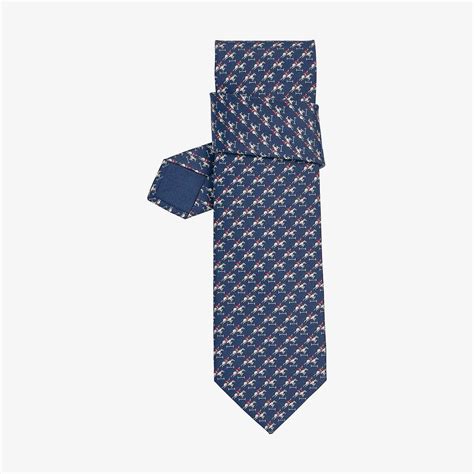are rolex watches good | Rolex watches worth money
$255.00
In stock
The name Rolex. It evokes images of luxury, precision, and timeless elegance. It's a brand recognized globally, often synonymous with success and achievement. But beyond the marketing hype and celebrity endorsements, the fundamental question remains: Are Rolex watches *good*?
To answer this, we need to delve deep, examining not just the brand's history and reputation, but also the technical aspects, the investment potential, and the overall value proposition. We'll explore the intricacies of Rolex accuracy, discuss whether they're truly worth the money, and even touch upon the most desirable models and the best Rolex to own based on various criteria.
A Legacy Forged in Precision: From Wilsdorf & Davis to the Crown
The story of Rolex begins in 1905, not with a single, iconic timepiece, but with a partnership. Hans Wilsdorf and Alfred Davis, brothers-in-law, established Wilsdorf & Davis in London. Their initial business model wasn't about crafting complete watches themselves. Instead, they imported high-quality Swiss watch movements to England, where they were then cased and sold by other jewelers. This early focus on quality movements from Switzerland laid the foundation for the precision and reliability that would later define the Rolex brand.
Wilsdorf, a visionary with a keen understanding of marketing, recognized the potential of wristwatches. In an era dominated by pocket watches, wristwatches were still considered somewhat of a novelty, primarily worn by women. Wilsdorf, however, saw their practicality and potential for widespread adoption. He believed that a wristwatch could be just as accurate and reliable as a pocket watch, and he set out to prove it.
The name "Rolex" itself is shrouded in some mystery. Wilsdorf wanted a brand name that was short, easy to pronounce in multiple languages, and visually appealing. He claimed he came up with it in the back of a London bus, but the true origin remains a subject of speculation. Regardless of its creation, the name stuck, and Wilsdorf registered "Rolex" as a brand name in 1908.
The company officially moved its operations to Geneva, Switzerland, in 1919, solidifying its commitment to Swiss watchmaking tradition. This move allowed Rolex to exert greater control over the entire production process, from movement design and manufacturing to case construction and final assembly.
This historical context is crucial to understanding why Rolex watches are considered "good." The brand wasn't built overnight on marketing alone. It was built on a foundation of sourcing quality components, embracing innovation, and relentlessly pursuing precision and reliability.
Accuracy: A Cornerstone of Rolex Excellence
One of the most frequently asked questions about Rolex watches is: "How accurate are Rolex watches?" The answer is, generally, very accurate.
Rolex doesn't just rely on standard industry benchmarks. Every Rolex movement is chronometer-certified by the Contrôle Officiel Suisse des Chronomètres (COSC), the Official Swiss Chronometer Testing Institute. COSC subjects each movement to rigorous testing over 15 days, in five different positions and at three different temperatures. To earn the COSC certification, a movement must meet strict accuracy standards, typically ranging from -4 to +6 seconds per day.
However, Rolex doesn't stop there. After the movement is cased, Rolex subjects the complete watch to its own internal testing, which is even more stringent than the COSC standards. Rolex's "Superlative Chronometer" certification guarantees an accuracy of -2/+2 seconds per day, a testament to their commitment to precision.
This obsessive focus on accuracy is achieved through a combination of factors:
* In-house Movements: Rolex designs and manufactures its own movements, allowing for complete control over the production process and ensuring the highest quality standards.
* High-Quality Materials: Rolex utilizes durable and reliable materials, such as Parachrom hairsprings (resistant to magnetic fields and temperature variations) and Paraflex shock absorbers, to enhance the movement's performance and longevity.
* Metronomic Precision: Rolex movements are designed for smooth, consistent operation, minimizing variations in accuracy.
* Skilled Craftsmanship: Experienced watchmakers meticulously assemble and regulate each movement, ensuring optimal performance.
Therefore, when considering whether Rolex watches are "good," their exceptional accuracy is a significant factor in their favor. They are built to keep time reliably and consistently, a core requirement for any quality timepiece.
Worth the Money? A Complex Equation
The question of whether a Rolex is "worth the money" is more subjective and depends heavily on individual circumstances and priorities. Rolex watches are undeniably expensive, with prices ranging from several thousand dollars for entry-level models to hundreds of thousands (or even millions) for rare and highly sought-after pieces.
To determine if a Rolex is worth the investment, consider the following factors:
* Quality and Craftsmanship: As discussed earlier, Rolex watches are meticulously crafted using high-quality materials and advanced manufacturing techniques. The attention to detail and the commitment to precision justify a significant portion of the price.
are rolex watches goodAdditional information
| Dimensions | 7.6 × 4.9 × 3.2 in |
|---|








